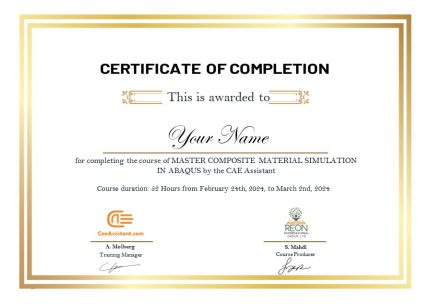Predictive Maintenance Course: Master Techniques, Technologies, and Data-Driven Strategies
Predictive Maintenance Course Overview
This Predictive Maintenance (PdM) course provides participants with a robust understanding of various maintenance strategies and their applications across industries. It blends theoretical concepts with practical, hands-on techniques in diagnostics, prognostics, and decision optimization using data science and modern sensor technologies. Participants will delve into the key components of PdM, from root cause analysis to the use of diagnostic tools like vibration analysis, thermography, and tribology. This course prepares participants to make informed decisions on maintaining equipment and preventing failures, ensuring smooth operations and reduced downtime. Below, you can see the Predictive Maintenance course objectives.
Predictive Maintenance Course Objectives
The objectives of this course are to:
- Equip participants with a clear understanding of various maintenance strategies, including time-based, condition-based, and predictive maintenance.
- Introduce data science techniques relevant to predictive maintenance, such as sensor data analysis, machine learning models, and diagnostic tools.
- Provide practical experience with modern PdM tools and technologies.
- Develop participants’ ability to predict failures, optimize maintenance decisions, and implement PdM strategies in various industries.
Learning Outcomes
Upon completing the Predictive Maintenance course, participants will be able to:
- Understand and implement various maintenance strategies (e.g., condition-based, predictive).
- Apply diagnostic tools such as vibration analysis, thermography, and tribology to monitor equipment.
- Utilize data science and machine learning techniques for condition monitoring and failure prediction.
- Optimize maintenance decisions using cost-benefit analysis and risk assessment.
- Develop and implement a predictive maintenance strategy for any industry or system.
Predictive Maintenance Conclusion
This Predictive Maintenance course offers a deep dive into the theories, tools, and techniques necessary to shift from reactive to predictive strategies in equipment maintenance. Combining practical hands-on experience with cutting-edge technologies like machine learning and advanced diagnostics, this course prepares professionals to lead predictive maintenance programs, maximize equipment uptime, and enhance operational efficiency.
You can find more info and references via this link: https://www.sciencedirect.com/search?qs=predictive%20maintenance%20
- Overview of time-based, condition-based, and predictive maintenance strategies.
- Understanding the role of maintenance in different industries and devices.
- Criteria for selecting appropriate maintenance strategies for various equipment and systems.
- Introduction to predictive maintenance concepts and benefits.
- Key technologies driving PdM, such as sensors, machine learning, and Internet of Things (IoT).
- Overview of condition monitoring and diagnostic tools used in PdM.
- Collection, processing, and analysis of sensor data.
- Introduction to machine learning techniques for PdM, such as Gaussian Process Regression (GPR).
- Predictive models for remaining useful life (RUL) estimation and degradation monitoring.
- Vibration analysis: tools and methods for detecting imbalances, misalignments, and wear.
- Ultrasonic monitoring for detecting leaks, cracks, and friction issues.
- Thermography for temperature monitoring and identifying hotspots in machinery.
- Tribology and oil analysis for monitoring lubrication and wear.
- Advanced techniques for failure prediction and maintenance scheduling.
- Use of data-driven models, time series analysis, and trend analysis in predicting failures.
- Practical applications of prognostics in different industries, including manufacturing and energy.
- Introduction to decision-making frameworks for optimizing maintenance operations.
- Cost-benefit analysis and risk assessment for maintenance planning.
- Multi-objective optimization: balancing costs, downtime, and safety in maintenance decisions.
- Case studies on effective maintenance optimization strategies.
- Defining and monitoring KPIs to measure the effectiveness of PdM strategies.
- Strategies for integrating predictive maintenance into existing maintenance programs.
- Final project: Designing a comprehensive PdM strategy for a chosen industry or system.
- Electric motor analysis: detecting faults and inefficiencies in electric motors.
- Process parameter monitoring for real-time condition monitoring and predictive analytics.
- Visual inspection methods and their integration with sensor-based techniques.
- Integration of PdM systems with Industrial Internet of Things (IIoT).
Our team of CAE Assistant instructors, renowned experts in their respective domains, will deliver each section of the course, providing you with unparalleled knowledge and insights.
Currently, the course instructor is being finalized, but we are committed to bringing you one of the leading experts in the field. We’re working diligently to ensure that a top researcher will be selected to develop and deliver this course soon.
Our courses are designed for a diverse audience that includes graduate and PhD students, R&D professionals in industry, and university faculty members. Each course is meticulously crafted based on the latest ISI papers and cutting-edge research to ensure that participants receive the most current and relevant knowledge in emerging technology topics.
Graduate and PhD Students: These courses provide advanced insights and practical applications of recent research, equipping students with the latest knowledge and methodologies to enhance their academic work and research capabilities.
R&D Employees: For professionals working in industrial research and development, our courses offer valuable updates on new trends and technologies, fostering innovation and enhancing their ability to address complex challenges in their projects.
University Faculty Members: Academics seeking to stay abreast of the latest developments will benefit from our courses by gaining access to cutting-edge research and emerging technologies, which can be integrated into their teaching and research activities.
By participating in our courses, all these groups will gain a competitive edge through up-to-date knowledge, practical skills, and insights directly derived from the forefront of scientific and technological advancements.
Finite Element Analysis course Certificate
Upon successful completion of this course, you will receive a course completion certificate. This certificate guarantees your skills with the amount of time spent, skills trained, and can be verified online.

Predictive Maintenance course is ideal for:
- Maintenance and reliability engineers seeking to enhance their knowledge of predictive maintenance.
- Data scientists looking to apply their skills in industrial applications.
- Operations managers responsible for maintaining critical equipment and reducing downtime.
- Technicians and supervisors in charge of maintenance processes who want to stay updated on the latest PDM technologies.
First Session for Free!



